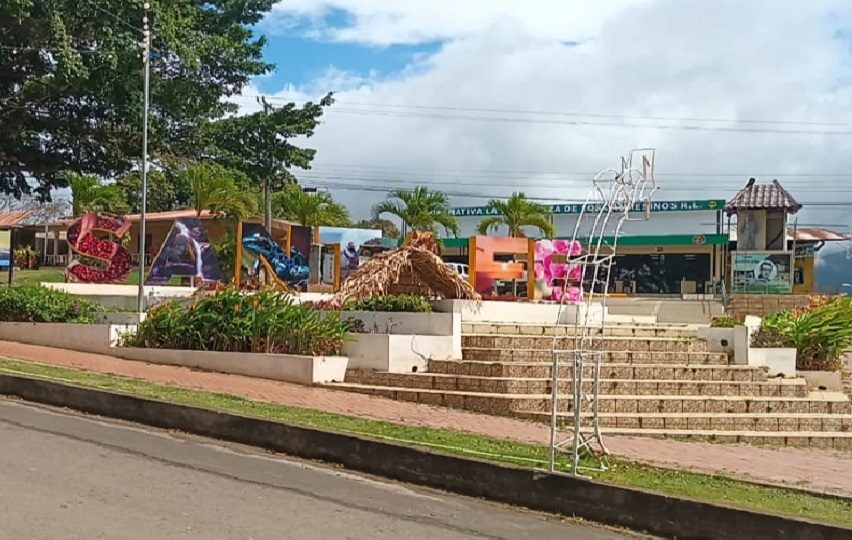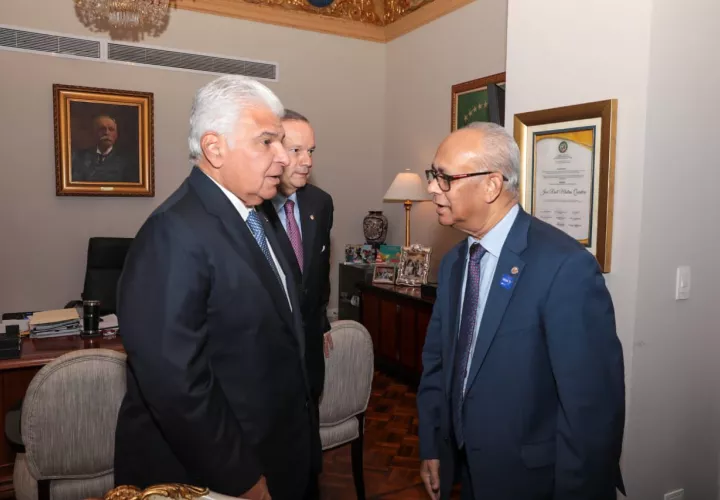Panama Rejects Future US Administration’s Immigration Plan

The Panamanian Foreign Ministry responded to recent reports published by US media, which suggest that the future administration of Donald Trump could be designing a plan to deport migrants to third countries, including Panama, if their countries of origin refuse to receive them.
In its official statement, the Foreign Ministry clarified that it has not received any formal or informal notification regarding this proposal and made it clear that the country will not accept deported migrants of other nationalities, reaffirming its commitment to the protection of national sovereignty.
“In light of the news published in the US media about the possibility of sending deportees to Panama from the US, we inform you that we have not received any official or unofficial communication about this proposal,” the Panamanian Foreign Ministry said.
The statement was issued in response to a report by NBC News, which mentioned Panama as one of the possible destinations for migrants deported under a new immigration strategy proposed by the incoming U.S. administration.
The statement also stressed that under international law, Panama is not obliged to accept migrants who are not Panamanian citizens.
“We wish to maintain relations with the United States always within the framework of mutual respect. Our main mission is to protect the interests of the Republic of Panama,” the institution concluded.
According to NBC News, the future administration would be considering implementing an immigration policy that would involve sending deported migrants to countries such as Panama, the Bahamas, Grenada and the Turks and Caicos Islands, in case their countries of origin refuse to accept them.
If implemented, this measure could leave thousands of people in a vulnerable situation, displaced in territories with which they have no cultural or social ties. Such a scenario raises humanitarian and logistical concerns for both migrants and receiving countries.
During his previous term, Trump implemented a similar policy with Guatemala through a “safe third country” agreement.
This agreement was harshly criticized by human rights organizations, such as the American Civil Liberties Union (ACLU), which denounced the risks to which migrants were exposed when transferred to a country with inadequate conditions for their reception.
The implementation of such agreements has sparked an intense international debate on the responsibility of nations to protect the rights of migrants and the legality of imposing unilateral migration policies.
Before the announcement by the President-elect of the United States, Roger Mojica, director of the National Migration Service of Panama, had already expressed in statements that the country does not have the capacity to become a destination for forced reception of deported migrants.
“Panama is not an alternative for those who are unable to enter the United States. We do not have the capacity to be a host country. There is a considerable unemployment rate, and this is taken into account when evaluating this type of measures,” Mojica said in the interview published last Sunday.
Panama is facing migratory pressure due to its geographic position as a transit point for thousands of migrants who cross the dangerous Darien jungle in their attempt to reach the United States.
In 2023, more than 520,000 migrants crossed this jungle, considered one of the most dangerous migration routes in the world.
However, in 2024, the migratory flow has been reduced by 40%, with 296,411 crossings recorded to date.
This decrease is attributed to the measures implemented by the Panamanian government, in collaboration with international organizations, to control and manage the transit of migrants through its territory.
It is important to remember that on July 1, when José Raúl Mulino assumed the presidency of Panama, a key agreement was signed with the United States.
U.S. Homeland Security Secretary Alejandro Mayorkas and Panama’s new foreign minister, Javier Martínez-Acha, signed an agreement in which Washington agreed to cover the costs of repatriating migrants who cross the Darien jungle in an attempt to reach U.S. territory.
This agreement is part of Mulino’s plan to stop the passage of migrants through Panama, in an effort to mitigate the migration crisis. President Mulino told the United States Government that its new immigration border is in the Darien.
Since the signing of this agreement, Panama has deported hundreds of migrants, mainly of Colombian nationality, through charter flights financed by the United States.
This bilateral agreement seeks to strengthen cooperation between both nations on migration issues, but always within the framework of mutual respect and compliance with international regulations.
The new US administration has promised to carry out a massive deportation program for illegal immigrants. During Trump’s election campaign, he used aggressive rhetoric against migrants, blaming them for an alleged wave of crime in the United States. This narrative has resonated deeply with sectors of the conservative electorate, concerned about security issues and border control.
Trump has claimed that there is an “invasion” of migrants on the southern border, going so far as to say that they represent a threat to national security. This type of talk has polarized the immigration debate in the United States and has generated uncertainty in transit and destination countries, such as Panama. The possibility of implementing a policy of deportations to third countries has raised alarm bells in the region, which already faces significant humanitarian challenges.





